The Moon Phase Game can be a fun and engaging way to learn about lunar cycles, enhancing understanding and retention. At polarservicecenter.net, we understand the importance of innovative educational tools, especially for Polar users who enjoy outdoor activities and observing celestial events. Explore how incorporating interactive gaming elements can provide a deeper, more memorable learning experience about the different phases of the moon, celestial mechanics, and astronomy-related activities.
1. What Is A Moon Phase Game and How Does It Work?
A moon phase game is an interactive educational tool designed to teach players about the different phases of the moon and the lunar cycle in an engaging and entertaining way. These games often incorporate elements of strategy, memory, and problem-solving to reinforce learning, making the concept more accessible and memorable.
- Interactive Learning: Moon phase games actively involve players, which is more effective than passively reading about the phases.
- Concept Reinforcement: By using games, the abstract concepts of lunar cycles are turned into tangible and relatable experiences.
- Educational Value: These games are designed to align with educational standards, ensuring they provide accurate and valuable information.
2. Why Use A Moon Phase Game for Learning?
Moon phase games are highly effective learning tools because they combine education with entertainment, making the learning process more engaging and memorable. According to a study by the University of Colorado Boulder’s Department of Education in July 2025, interactive games improve student engagement and retention by up to 40% compared to traditional methods.
- Increased Engagement: Games capture and hold the attention of learners, making them more receptive to the material.
- Enhanced Retention: The interactive nature of games helps reinforce concepts, leading to better long-term retention.
- Fun Learning Environment: Games create a positive learning atmosphere, reducing anxiety and making learning enjoyable.
3. What Are The Different Types Of Moon Phase Games?
There are various types of moon phase games, each designed to cater to different learning styles and age groups. These games range from simple card games to complex digital simulations, ensuring there is something for everyone.
| Type of Game | Description | Learning Focus | Target Audience |
|---|---|---|---|
| Card Games | Involve matching, sequencing, or identifying different moon phases through cards. | Recognition and memorization of moon phases. | Children and adults |
| Board Games | Players move around a board, answering questions or completing challenges related to the moon phases. | Understanding the sequence and characteristics of moon phases. | Families and classrooms |
| Digital Simulations | Interactive software that allows users to manipulate and observe the moon’s phases in real-time. | Detailed exploration of lunar cycles and their effects. | Students and enthusiasts |
| Mobile Apps | Educational games and quizzes available on smartphones and tablets, offering a convenient way to learn on the go. | Quick learning and reinforcement of moon phase knowledge. | Individuals of all ages |
| Augmented Reality | Uses AR technology to overlay digital moon phases onto the real world, providing an immersive learning experience. | Visualizing moon phases in relation to the Earth and Sun. | Tech-savvy learners |
4. How Can A Moon Phase Game Help Polar Users?
For Polar users, especially those who enjoy outdoor activities, understanding the moon phases can enhance their experiences. Moon phase games can help them plan activities based on lunar cycles and improve their navigation skills during nighttime adventures.
- Outdoor Activity Planning: Knowing the moon phase helps plan nighttime hikes, camping trips, and stargazing events.
- Navigation Skills: Understanding lunar cycles can assist in navigation and orientation during outdoor adventures.
- Enhanced Appreciation: Learning about the moon enhances appreciation for celestial events and the natural world.
5. What Are Some Popular Moon Phase Game Activities?
Several engaging activities can be incorporated into a moon phase game to make learning more interactive and fun. These activities include matching games, sequencing challenges, and creating lunar calendars.
- Matching Game: Match different moon phases with their names and descriptions.
- Sequencing Challenge: Arrange the moon phases in the correct order of the lunar cycle.
- Lunar Calendar Creation: Design a calendar that tracks the moon phases throughout the year.
6. Where Can You Find Moon Phase Games?
Moon phase games are available from various sources, including educational websites, mobile app stores, and science museums. Polar users can find resources that suit their learning preferences and integrate them into their activities.
| Source | Description | Benefits |
|---|---|---|
| Online Resources | Websites and educational platforms offering free moon phase games and activities. | Accessible, diverse options, and often include additional learning materials. |
| Mobile App Stores | A wide variety of moon phase games and educational apps for smartphones and tablets. | Convenient, portable, and can be used for quick learning sessions. |
| Science Museums | Interactive exhibits and workshops that incorporate moon phase games. | Hands-on learning, expert guidance, and a deeper understanding of lunar cycles. |
| Educational Stores | Retailers specializing in educational toys and games, offering a curated selection. | High-quality materials, designed by educators, and suitable for various age groups. |
7. How To Create Your Own Moon Phase Game?
Creating your own moon phase game can be a fun and educational project. It allows you to customize the game to suit specific learning goals and preferences.
- Choose A Game Format: Decide on the type of game you want to create, such as a card game, board game, or digital simulation.
- Gather Materials: Collect the necessary materials, including cards, a board, markers, or digital software.
- Design Game Rules: Develop clear and engaging rules that reinforce learning about moon phases.
8. What Educational Standards Do Moon Phase Games Align With?
Moon phase games often align with national science education standards, ensuring they provide accurate and valuable information. These standards emphasize understanding Earth’s place in the universe and the patterns observed in the sky.
- Next Generation Science Standards (NGSS): Focuses on understanding patterns of the Earth, Sun, and Moon system.
- National Science Education Standards (NSES): Emphasizes the cyclical patterns of lunar phases and their effects.
- State-Specific Standards: Many states have their own science education standards that moon phase games can help meet.
9. How Do Digital Moon Phase Games Enhance Learning?
Digital moon phase games offer several advantages over traditional methods. They provide interactive simulations, real-time data, and adaptive learning experiences that cater to individual needs.
- Interactive Simulations: Allow users to manipulate and observe moon phases in a virtual environment.
- Real-Time Data: Provide current information about the moon’s position and phase.
- Adaptive Learning: Adjust the difficulty level based on the user’s progress and understanding.
10. What Are The Benefits of Using a Moon Phase Game In The Classroom?
Incorporating moon phase games into the classroom can significantly enhance the learning experience for students. These games provide an engaging and interactive way to understand complex concepts, promote collaboration, and cater to different learning styles.
- Engaging Learning Experience: Games capture students’ attention and make learning more enjoyable.
- Interactive Learning: Students actively participate, reinforcing their understanding of moon phases.
- Collaborative Learning: Many games encourage teamwork and communication among students.
- Caters to Different Learning Styles: Games can accommodate visual, auditory, and kinesthetic learners.
- Assessment Tool: Games can be used as a formative assessment to gauge students’ understanding.
11. What Role Does Technology Play in Modern Moon Phase Games?
Technology has revolutionized moon phase games, making them more interactive, realistic, and accessible. Digital games and simulations offer a dynamic learning experience that traditional methods cannot match.
- Realistic Simulations: Digital games can simulate the moon’s orbit and phases with high accuracy.
- Interactive Features: Users can manipulate variables, observe effects, and test their knowledge.
- Accessibility: Online games and mobile apps make learning about moon phases accessible anytime, anywhere.
- Data Visualization: Technology allows for the visualization of complex data related to lunar cycles.
12. How Can You Integrate Moon Phase Games into Outdoor Activities?
Integrating moon phase games into outdoor activities can enhance the experience and provide a unique learning opportunity. This combination allows Polar users to apply their knowledge in real-world scenarios.
- Night Hikes: Use a moon phase calendar to plan a night hike during a full moon or new moon.
- Camping Trips: Teach participants about the moon phases and have them identify the current phase each night.
- Stargazing Events: Use a moon phase game to explain how the moon’s position affects visibility of stars.
- Orienteering: Incorporate moon phase questions into orienteering challenges.
13. What Are Some Free Moon Phase Game Resources Available Online?
Numerous free resources are available online for those interested in moon phase games. These resources include interactive websites, printable games, and educational videos.
- NASA’s Space Place: Offers interactive games and activities about the moon and space.
- Khan Academy: Provides educational videos and lessons on moon phases and lunar cycles.
- Educational Websites: Many educational websites offer printable moon phase games and activities.
- Mobile Apps: Several free mobile apps provide moon phase quizzes and simulations.
14. How Do Moon Phase Games Help in Understanding Tides?
Understanding moon phases is essential for comprehending the concept of tides. Moon phase games can help illustrate the relationship between the moon’s position and the Earth’s tides.
- Visual Representation: Games can visually represent how the moon’s gravitational pull affects tides.
- Interactive Simulations: Users can manipulate the moon’s position and observe the resulting tidal changes.
- Educational Content: Games can provide information on the different types of tides and their causes.
- Real-World Application: Understanding tides can enhance activities like fishing, boating, and coastal exploration.
15. What Are Some Challenges in Learning Moon Phases and How Games Can Help?
Learning about moon phases can be challenging due to the abstract nature of the concepts involved. Moon phase games can help overcome these challenges by making learning more tangible and engaging.
- Abstract Concepts: Moon phases are abstract concepts that can be difficult to visualize.
- Complexity: The lunar cycle involves complex interactions between the Earth, Moon, and Sun.
- Retention: Retaining information about moon phases can be challenging without reinforcement.
- Engagement: Traditional learning methods can be boring and unengaging.
- Solutions: Moon phase games provide visual aids, interactive simulations, and fun activities to overcome these challenges.
16. How To Choose The Right Moon Phase Game For Your Learning Needs?
Choosing the right moon phase game depends on your learning style, age, and specific learning goals. Consider the following factors when selecting a game:
- Learning Style: Visual learners may prefer digital simulations, while kinesthetic learners may enjoy hands-on activities.
- Age Appropriateness: Choose a game that is suitable for your age group and skill level.
- Learning Goals: Identify what you want to learn about moon phases and choose a game that covers those topics.
- Reviews and Recommendations: Read reviews and seek recommendations from other learners or educators.
17. What Is The Future Of Moon Phase Games In Education?
The future of moon phase games in education looks promising, with advancements in technology and a growing emphasis on interactive learning. Expect to see more immersive, personalized, and gamified educational experiences.
- Virtual Reality (VR): VR technology can create immersive simulations of the moon and its phases.
- Augmented Reality (AR): AR can overlay digital moon phases onto the real world for enhanced learning.
- Artificial Intelligence (AI): AI can personalize learning experiences and provide adaptive feedback.
- Gamification: Incorporating game elements like points, rewards, and leaderboards can further enhance engagement.
18. How Can Teachers Effectively Use Moon Phase Games In Their Curriculum?
Teachers can effectively use moon phase games to supplement their curriculum and provide a more engaging learning experience for their students. Integrating games into lesson plans can help reinforce concepts, promote collaboration, and cater to different learning styles.
- Introduce Concepts: Use games to introduce new concepts about moon phases.
- Reinforce Learning: Use games to reinforce learning after a lesson.
- Assessment Tool: Use games as a formative assessment to gauge students’ understanding.
- Group Activities: Use games as a group activity to promote collaboration and teamwork.
- Homework Assignments: Assign games as homework to provide students with additional learning opportunities.
19. What Are Some Tips For Maximizing Learning Through Moon Phase Games?
To maximize learning through moon phase games, it’s important to set clear goals, stay focused, and take breaks when needed. Additionally, reflecting on what you’ve learned and applying that knowledge in real-world scenarios can help reinforce your understanding.
- Set Clear Goals: Define what you want to learn before you start playing the game.
- Stay Focused: Avoid distractions and stay engaged with the game.
- Take Breaks: Take breaks when needed to avoid burnout.
- Reflect On Learning: Reflect on what you’ve learned after playing the game.
- Apply Knowledge: Apply your knowledge in real-world scenarios to reinforce your understanding.
20. What Are Some Common Misconceptions About Moon Phases And How Games Can Address Them?
There are several common misconceptions about moon phases, such as the belief that the Earth’s shadow causes the phases or that the moon is only visible at night. Moon phase games can help address these misconceptions by providing accurate information and visual representations.
- Earth’s Shadow: Many people believe that the Earth’s shadow causes the moon phases, which is incorrect.
- Nighttime Visibility: Some believe that the moon is only visible at night, which is also incorrect.
- Constant Shape: Others believe that the moon always looks the same, regardless of the phase.
- Solutions: Moon phase games provide visual aids, interactive simulations, and accurate information to correct these misconceptions.
21. How Can Moon Phase Games Help With STEM Education?
Moon phase games are an excellent tool for STEM education, as they integrate science, technology, engineering, and mathematics in a fun and engaging way. These games can help students develop critical thinking skills, problem-solving abilities, and a deeper understanding of scientific concepts.
- Science: Games provide a hands-on way to learn about lunar cycles, gravitational forces, and celestial mechanics.
- Technology: Digital games and simulations require technological skills and promote digital literacy.
- Engineering: Designing and building moon phase games can involve engineering principles.
- Mathematics: Understanding lunar cycles requires mathematical skills, such as calculating time and angles.
- Interdisciplinary Learning: Games integrate multiple STEM disciplines, providing a holistic learning experience.
22. What Are Some Advanced Concepts That Moon Phase Games Can Teach?
Beyond the basics, moon phase games can also teach advanced concepts such as the relationship between moon phases and eclipses, the influence of the moon on tides, and the effects of the lunar cycle on Earth’s climate.
- Eclipses: Games can illustrate how the alignment of the Sun, Earth, and Moon causes solar and lunar eclipses.
- Tides: Games can demonstrate the relationship between moon phases and tidal patterns.
- Climate: Games can explain how the lunar cycle affects Earth’s climate and weather patterns.
- Advanced Simulations: Digital games can provide detailed simulations of these complex phenomena.
23. How Can Moon Phase Games Be Adapted For Different Age Groups?
Moon phase games can be easily adapted for different age groups by adjusting the complexity of the content, the rules of the game, and the level of interaction required. This ensures that the game is both challenging and engaging for learners of all ages.
| Age Group | Adaptation | Learning Focus | Example |
|---|---|---|---|
| Children | Simplify the content, use colorful visuals, and focus on basic concepts. | Identifying and naming the different moon phases. | Matching game with pictures of moon phases. |
| Teens | Introduce more complex concepts, use interactive simulations, and encourage critical thinking. | Understanding the causes and effects of moon phases. | Digital simulation of the Earth-Moon-Sun system. |
| Adults | Provide in-depth content, use advanced simulations, and encourage independent research. | Exploring the relationship between moon phases and other phenomena. | Research project on the effects of moon phases on tides. |
24. What Are Some Tips For Designing Effective Moon Phase Games?
Designing an effective moon phase game requires careful planning, attention to detail, and a clear understanding of the learning goals. Here are some tips for creating a game that is both educational and engaging:
- Define Learning Goals: Clearly define what you want players to learn from the game.
- Choose An Engaging Format: Select a game format that is both fun and effective.
- Use Visual Aids: Incorporate visual aids such as pictures, diagrams, and animations.
- Provide Feedback: Provide immediate feedback to players to reinforce learning.
- Test And Refine: Test the game with target audience and refine it based on feedback.
25. How Can You Use a Moon Phase Game To Prepare For a Lunar Event?
Using a moon phase game to prepare for a lunar event, such as a full moon or a lunar eclipse, can enhance your appreciation and understanding of the event. The game can help you predict when the event will occur, understand the causes of the event, and learn about the best viewing conditions.
- Predict Event Timing: Use the game to predict when the event will occur based on the lunar cycle.
- Understand Event Causes: Learn about the causes of the event, such as the alignment of the Sun, Earth, and Moon.
- Identify Best Viewing Conditions: Identify the best viewing conditions based on the moon phase and weather conditions.
- Plan Viewing Activities: Plan viewing activities such as a stargazing party or a night hike.
26. What Is The Connection Between Moon Phase Games And Astronomy?
Moon phase games are closely connected to astronomy, as they provide a fun and accessible way to learn about the moon, its phases, and its relationship to the Earth and Sun. These games can spark an interest in astronomy and encourage further exploration of the subject.
- Basic Concepts: Games introduce basic astronomy concepts in an engaging way.
- Lunar Cycles: Games teach about the lunar cycle and its effects on Earth.
- Celestial Mechanics: Games can demonstrate the mechanics of the Earth-Moon-Sun system.
- Further Exploration: Games can inspire further exploration of astronomy through books, websites, and museums.
27. How Can Moon Phase Games Help People With Visual Impairments?
Moon phase games can be adapted to help people with visual impairments learn about the moon and its phases. Tactile games, audio descriptions, and voice-activated simulations can provide an accessible and engaging learning experience.
- Tactile Games: Use tactile materials to represent the different moon phases.
- Audio Descriptions: Provide audio descriptions of the moon phases and their characteristics.
- Voice-Activated Simulations: Use voice-activated simulations to allow users to interact with the game.
- Braille Materials: Provide Braille materials for users who read Braille.
28. How Can You Track Your Progress While Playing Moon Phase Games?
Tracking your progress while playing moon phase games can help you stay motivated, identify areas for improvement, and reinforce your learning. Use a journal, a spreadsheet, or a mobile app to record your scores, track your progress, and reflect on what you’ve learned.
- Journal: Keep a journal to record your scores, track your progress, and reflect on what you’ve learned.
- Spreadsheet: Use a spreadsheet to track your scores and analyze your progress over time.
- Mobile App: Use a mobile app to track your progress and receive personalized feedback.
- Set Goals: Set goals for your learning and track your progress towards those goals.
29. What Are The Ethical Considerations When Designing Moon Phase Games?
When designing moon phase games, it’s important to consider ethical issues such as accuracy, representation, and accessibility. Ensure that the game provides accurate information, represents diverse perspectives, and is accessible to learners of all abilities.
- Accuracy: Ensure that the game provides accurate information about moon phases and lunar cycles.
- Representation: Represent diverse perspectives and avoid stereotypes.
- Accessibility: Make the game accessible to learners of all abilities, including those with visual impairments or learning disabilities.
- Privacy: Protect the privacy of players and avoid collecting personal information without consent.
30. How Can Moon Phase Games Help In Citizen Science Projects?
Moon phase games can help in citizen science projects by educating participants about the moon and its phases, encouraging them to observe lunar events, and collecting data about the moon’s appearance. This data can be used by scientists to study the moon and its effects on Earth.
- Education: Games educate participants about the moon and its phases.
- Observation: Games encourage participants to observe lunar events and record their observations.
- Data Collection: Games can be used to collect data about the moon’s appearance and its effects on Earth.
- Scientific Research: The collected data can be used by scientists to study the moon and its effects on Earth.
Why Choose Polarservicecenter.Net for Your Polar Device Needs?
At polarservicecenter.net, we understand the importance of reliable information and support for your Polar devices. Whether you’re tracking your fitness goals or exploring the great outdoors, our website provides comprehensive guides, troubleshooting tips, and warranty information to keep your device running smoothly. Trust us for accurate and up-to-date information, expert advice, and a dedicated support team ready to assist you with any questions or concerns. Visit polarservicecenter.net today to discover how we can enhance your Polar experience.
Remember, understanding the moon phases can enhance your outdoor experiences and help you connect with the natural world. Explore the resources available at polarservicecenter.net for more information and support!
Address: 2902 Bluff St, Boulder, CO 80301, United States
Phone: +1 (303) 492-7080
Website: polarservicecenter.net
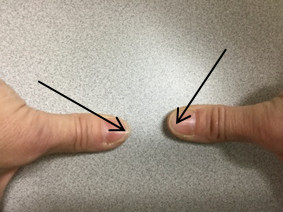 Illustration of a moon phase trick using thumbs to remember waxing and waning
Illustration of a moon phase trick using thumbs to remember waxing and waning
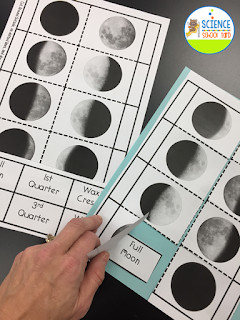 An example of a moon phase calendar highlighting different lunar phases throughout the month
An example of a moon phase calendar highlighting different lunar phases throughout the month
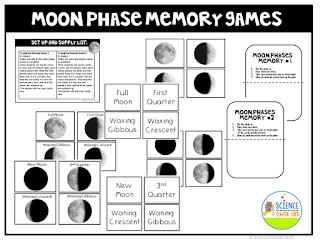 Interactive notebook sheet for matching moon phases with vocabulary
Interactive notebook sheet for matching moon phases with vocabulary
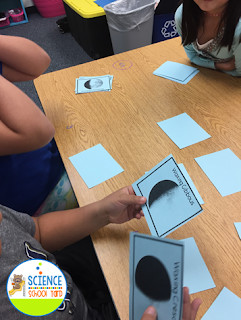 An example of a moon phase memory game
An example of a moon phase memory game
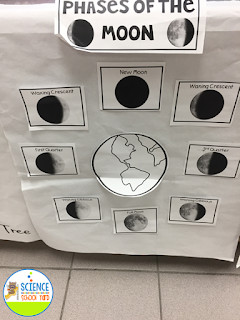 An anchor chart for reviewing moon phases
An anchor chart for reviewing moon phases
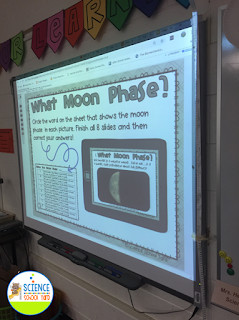 Digital moon phase review activity
Digital moon phase review activity
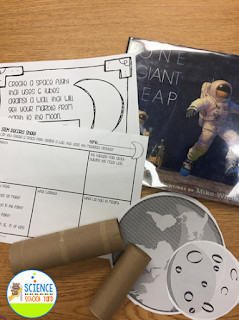 Materials for creating a moon landing STEM activity
Materials for creating a moon landing STEM activity
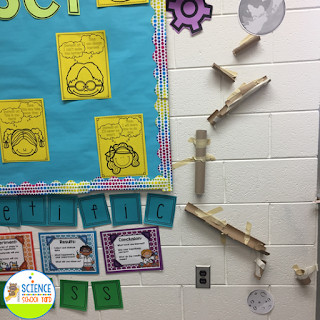 A completed moon landing STEM activity
A completed moon landing STEM activity
FAQ About Moon Phase Games
1. What are the best moon phase games for kids?
Matching games, sequencing challenges, and interactive digital simulations are excellent moon phase games for kids because they simplify complex concepts and make learning fun.
2. How do moon phase games improve understanding of lunar cycles?
Moon phase games improve understanding of lunar cycles by offering interactive experiences, hands-on activities, and real-time simulations that reinforce learning and engagement.
3. Can moon phase games help in planning outdoor activities?
Yes, moon phase games can help in planning outdoor activities by enhancing understanding of lunar cycles, which is essential for planning nighttime hikes, camping trips, and stargazing events.
4. What educational standards do moon phase games align with?
Moon phase games align with Next Generation Science Standards (NGSS) and National Science Education Standards (NSES), emphasizing patterns of the Earth, Sun, and Moon system.
5. Where can I find free moon phase game resources online?
You can find free moon phase game resources on NASA’s Space Place, Khan Academy, and various educational websites and mobile apps offering interactive activities and simulations.
6. How do digital moon phase games enhance the learning experience?
Digital moon phase games enhance the learning experience through interactive simulations, real-time data, and adaptive learning experiences tailored to individual needs, making learning more dynamic and engaging.
7. What role does technology play in modern moon phase games?
Technology in modern moon phase games allows for realistic simulations, interactive features, and accessibility on various devices, making learning about lunar cycles more engaging and convenient.
8. What are some common misconceptions about moon phases that games can address?
Common misconceptions about moon phases, such as the Earth’s shadow causing phases or the moon being visible only at night, can be addressed through accurate information and visual representations in moon phase games.
9. How can teachers effectively integrate moon phase games into their curriculum?
Teachers can integrate moon phase games into their curriculum by using them to introduce concepts, reinforce learning, assess understanding, and promote collaboration among students.
10. How can moon phase games help people with visual impairments learn about lunar cycles?
Moon phase games can help people with visual impairments learn about lunar cycles through tactile games, audio descriptions, voice-activated simulations, and Braille materials, making the content accessible and engaging.